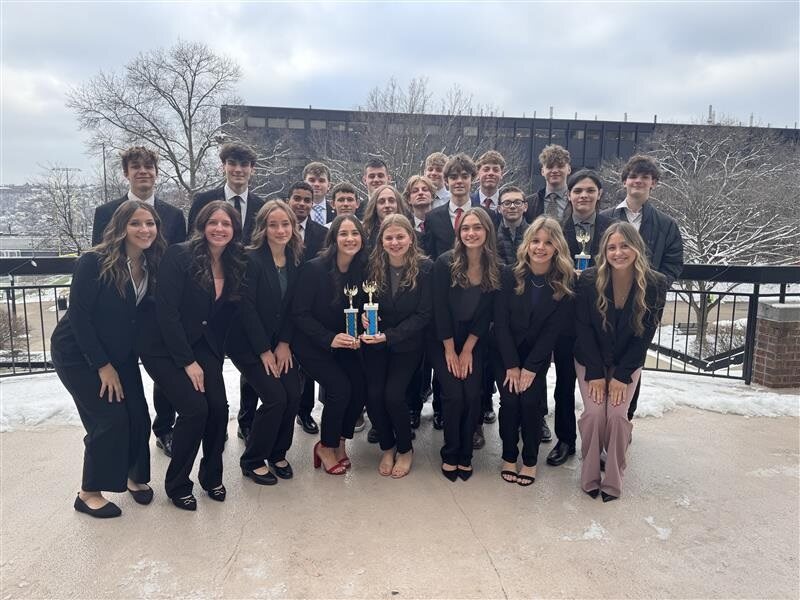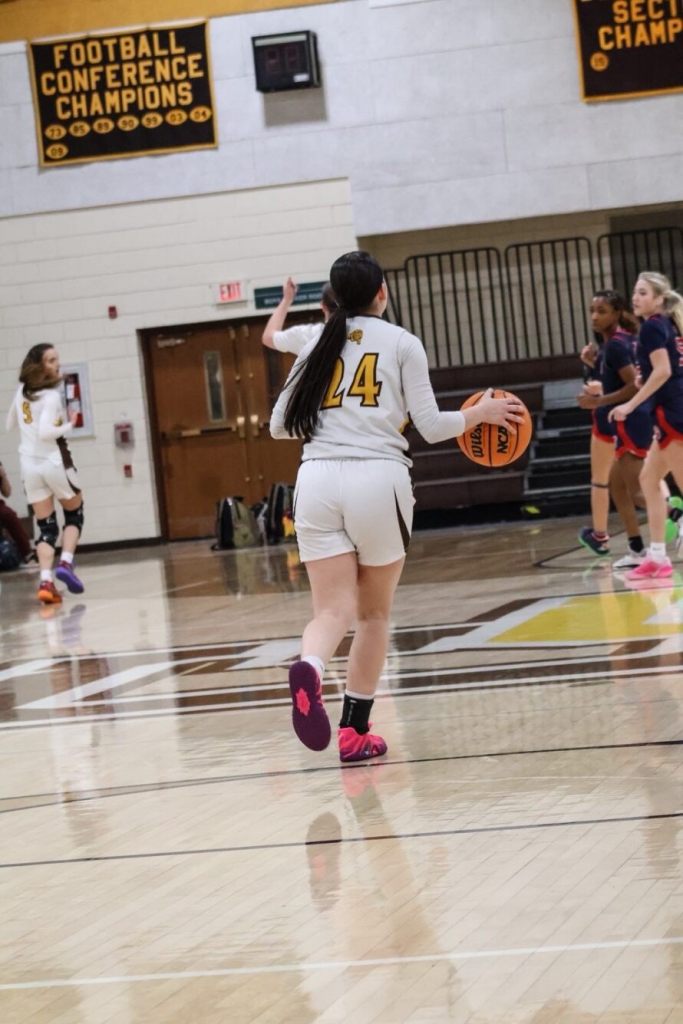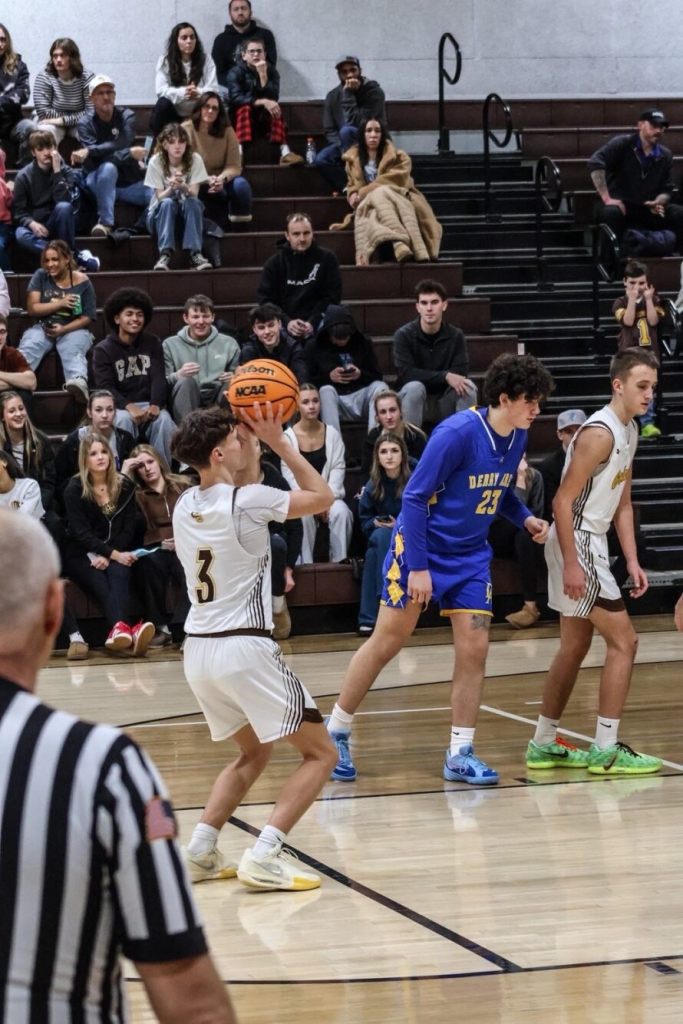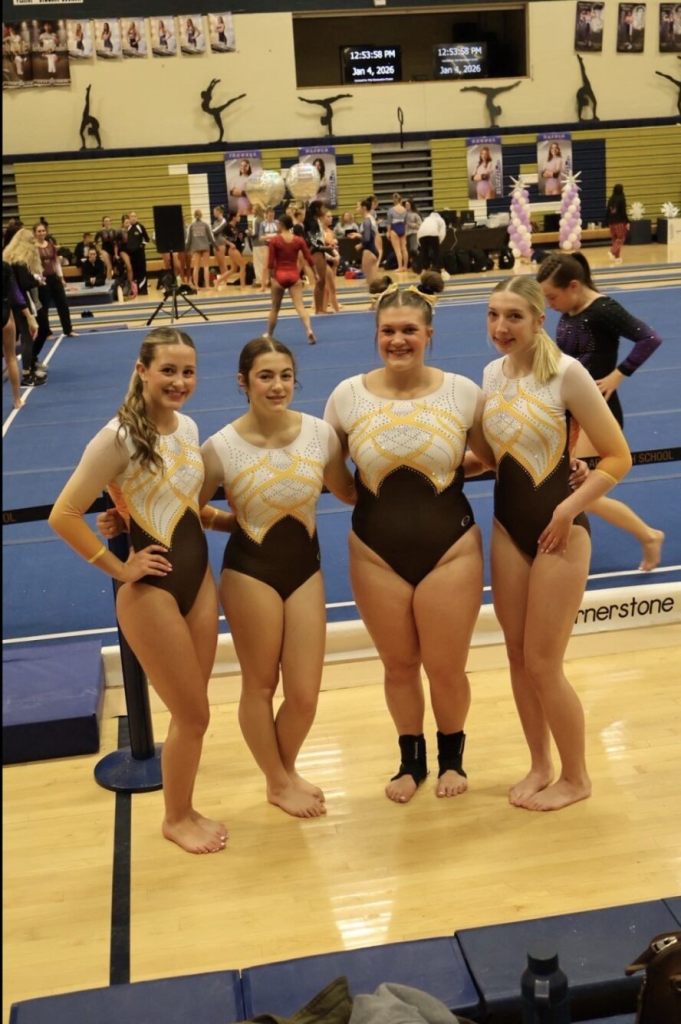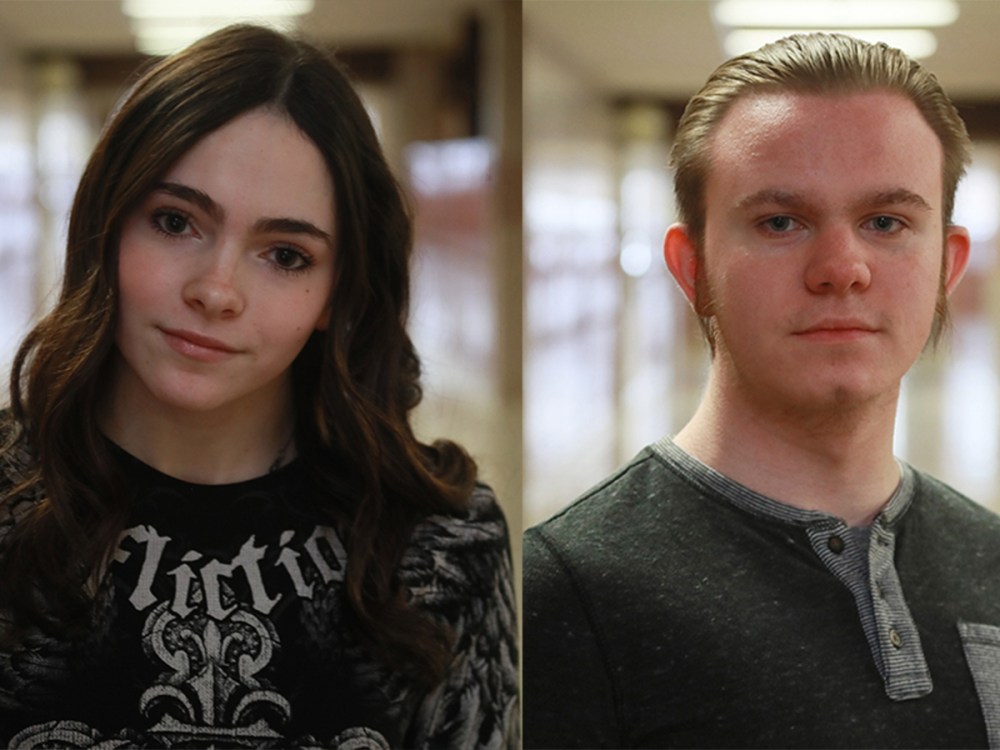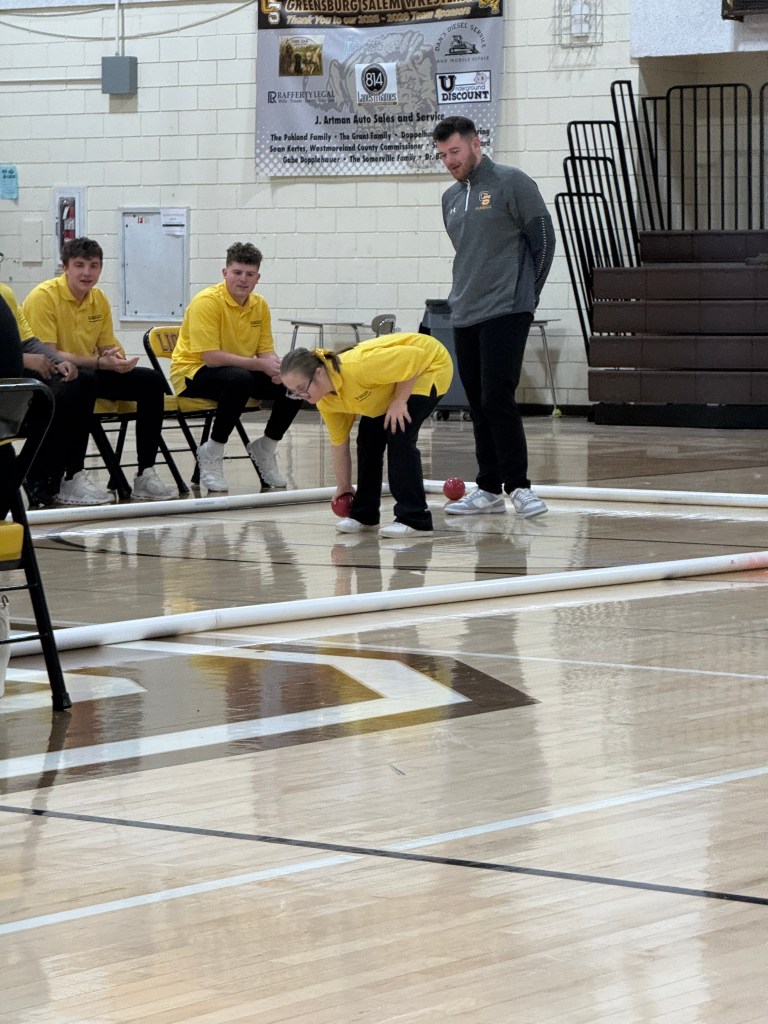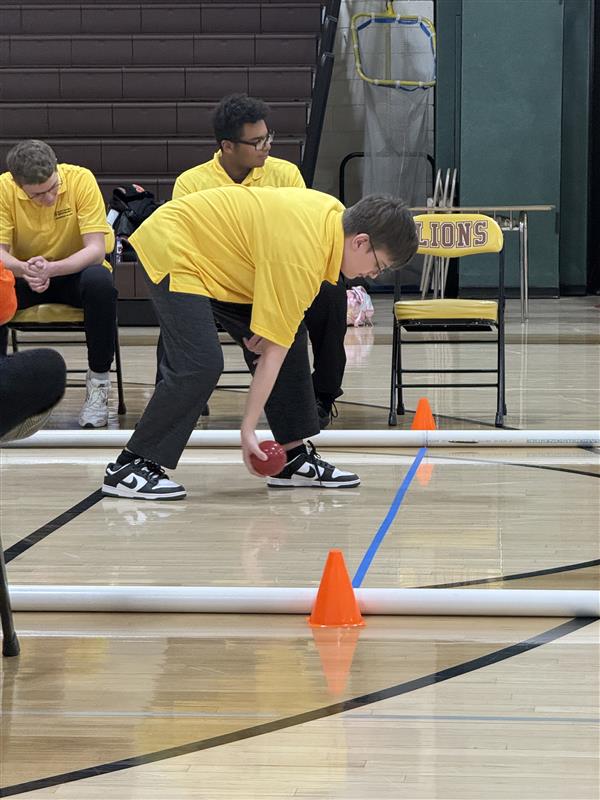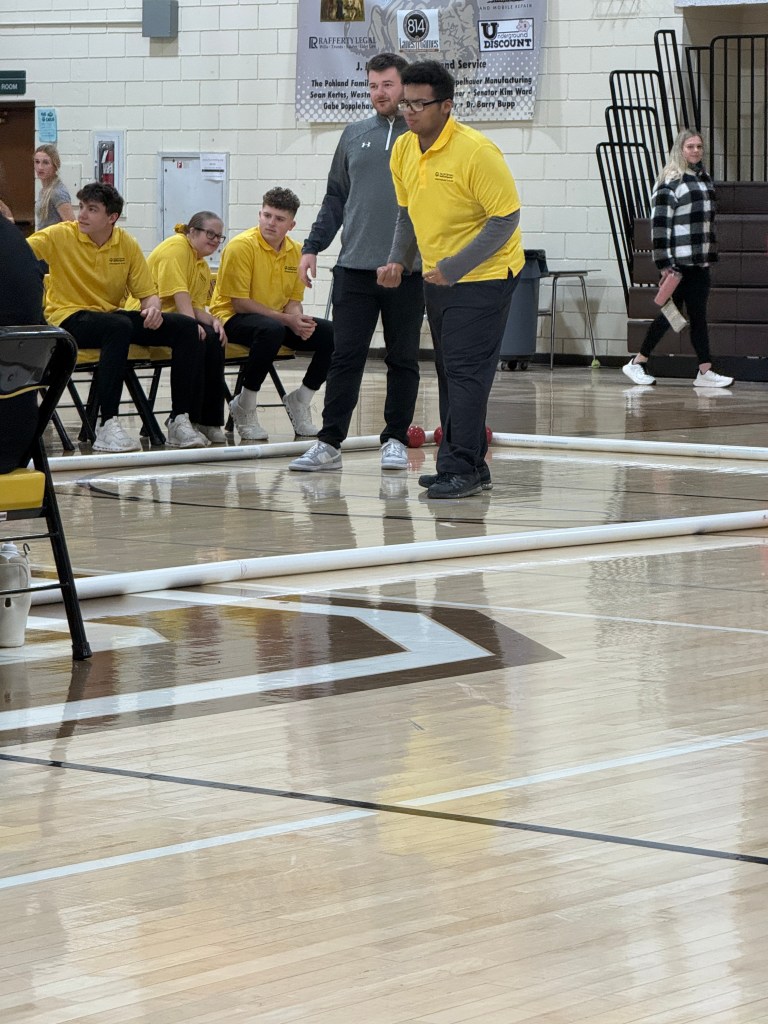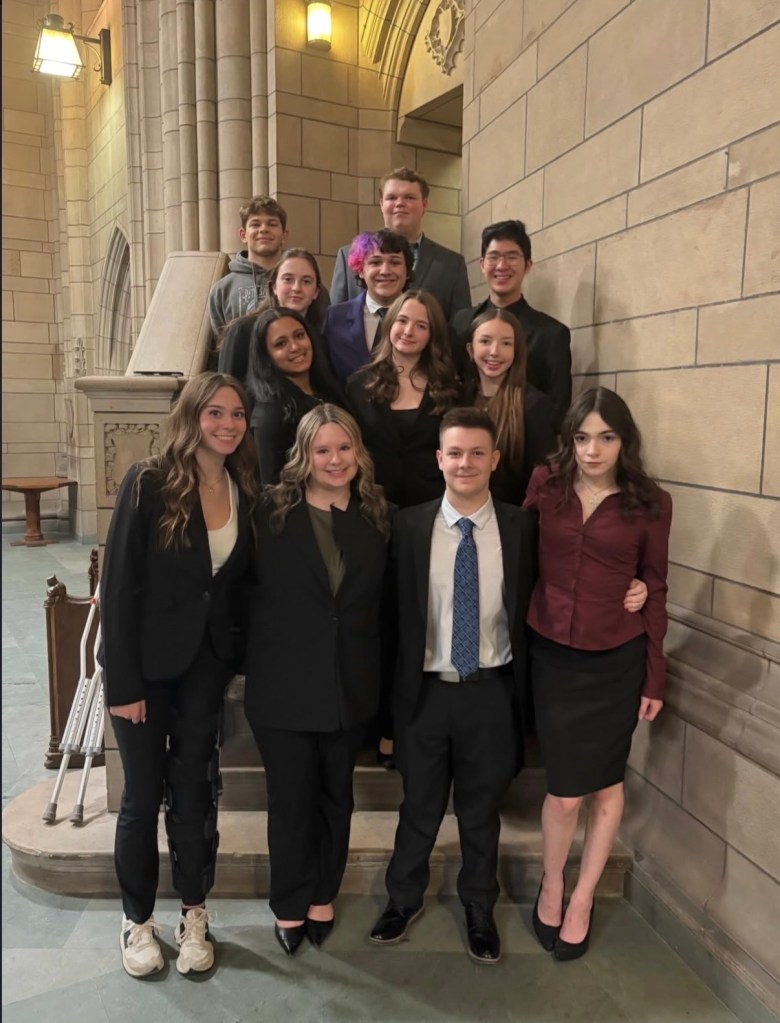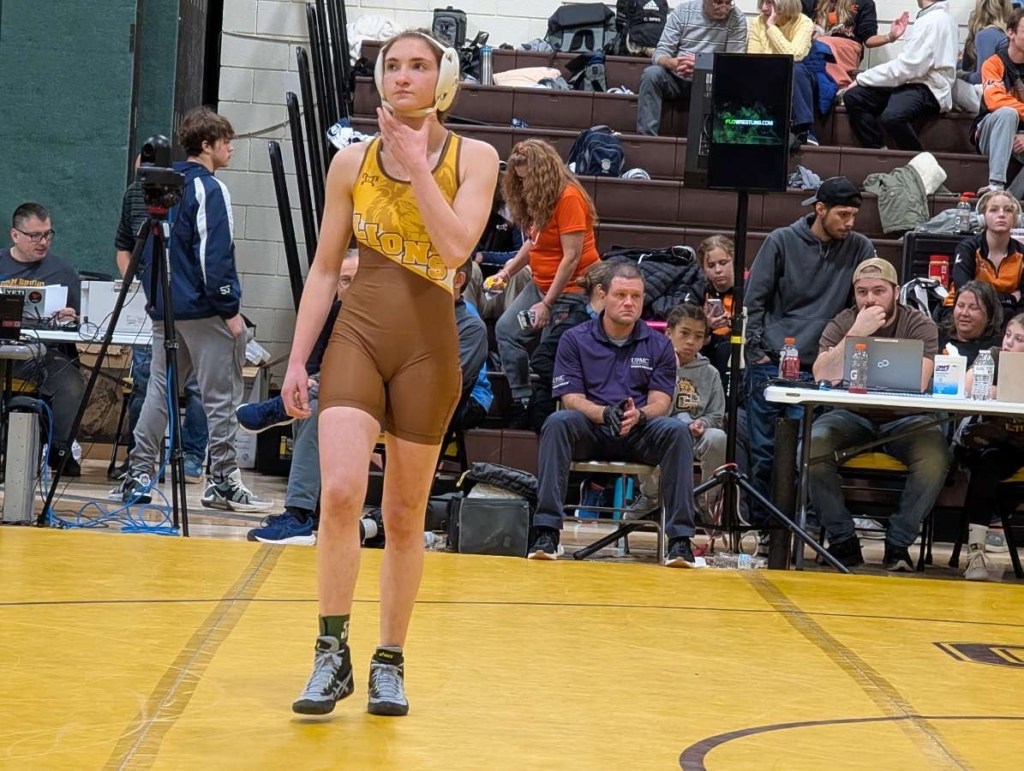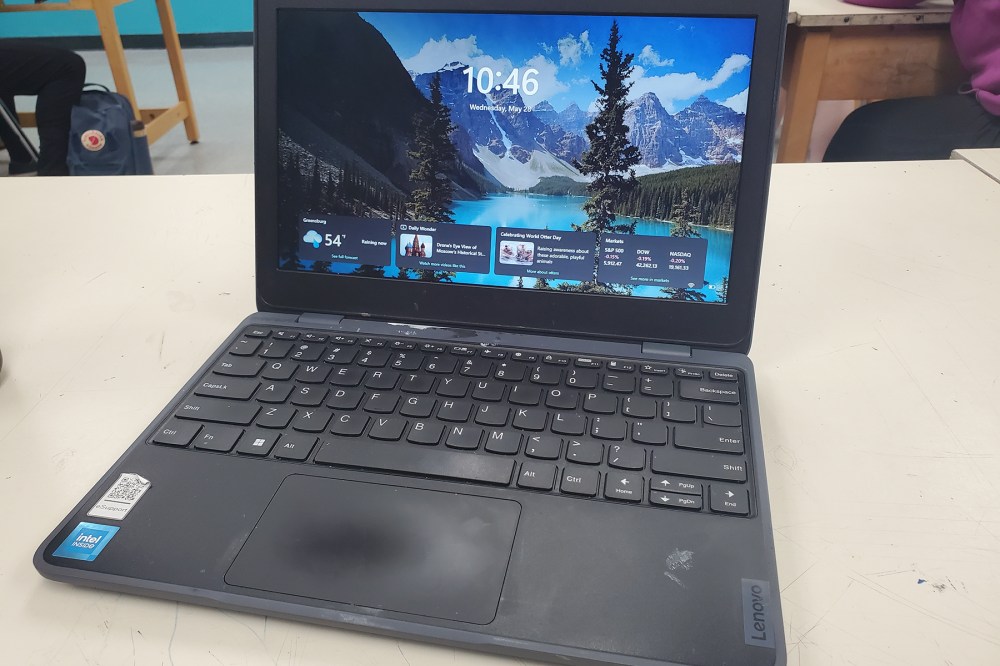Anything Goes is Underway

by Annabelle Volk
Anything goes here at GS!
This year, GS will present “Anything Goes” on Feb. 27, Feb. 28 and March 1.
“‘Anything Goes’ is a triple love story,” sophomore Janna Miller said. “Of course, there are other factors that go along with it. Everyone on the boat works together to make sure the right people are with each other by the end.”
Though this year’s musical is characterized by true love and marriage, it also incorporates comedy to keep the audience giggling.

Anything Goes posters hanging in classrooms and in the hallways promoting the show.
Photo by: Annabelle Volk
“Anything Goes” features four complete numbers of tap-dancing routines.
“It’s very funny to watch,” Miller said. “There’s lots of tap dancing in it, too. The whole cast works together in order to make all the tapping sounds in sync.”
Rehearsals are in full swing as opening night approaches.
“It’s tech week,” she said. “It’s the week that prepares us for the actual musical. We run the show full out every day of the week and slowly start adding in more things like lights, costumes, mics, and even the live orchestra.”
Tech week serves to prepare the cast for opening night by perfecting quick changes and other behind-the-scenes operations.
“Tech week is really like seeing the fruits of your labor,” senior Ian Smith said. “Rehearsals are much longer. Everything in the show is finally laid out.”
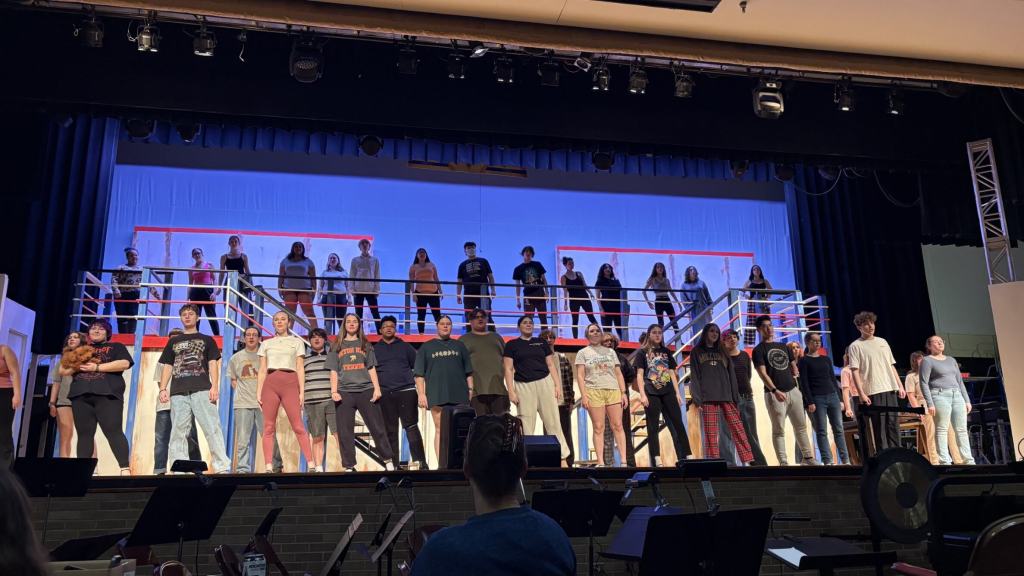
Students singing “Bon Voyage” during rehearsals.
Photo by: Annabelle Volk
Between the dancing and singing, many characters appear back-to-back.
“Most people have very few quick changes,” sophomore Rachel Reese said. “But some people have to wear wigs and also change their costumes. I pity the Angels, and I pity Reno with all ofmy heart because of the number of quick changes those girls have.”
Many cast members remarked on their quick changes between scenes, but they all agreed that Reno has the most difficult changes.
“I have 11 costumes,” junior Magee Heverly said. “Sometimes I layer the costumes. They made me my own personal dressing room under the set because I have so many quick changes.”
Despite all of the chaos backstage, the show must go on. Cast members are excited to perform for their family and friends and bring the writing of “Anything Goes” to life.
“It’s almost like star-crossed lovers,” Smith said. “It’s a Golden Age musical where reality bends to the will of the characters.”
The plot is complex and captivates the audience with bursts of comedy and vulnerable dialogue. It’s proven difficult to describe it shortly.
“I like to put it this way,” senior Dakota Glad said. “Think Titanic, but it doesn’t sink. Mix in some tap dancing, and you have ‘Anything Goes.’”

